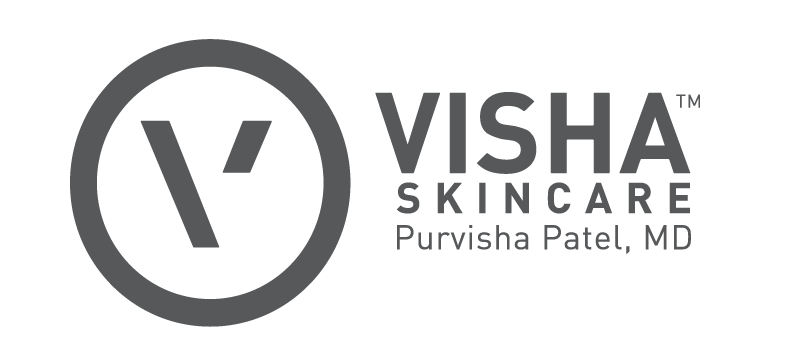
Prevention posted "Niacinamide Is the Gentle Ingredient Sensitive Skin Loves, According to Dermatologists" and features Visha Skincare founder, Dr. Purvisha Patel's expert commentary on how Niacinamide helps to clear complexion and lessen irritation.
Vitamin B3 is popping up in serums and moisturizers right now. Here’s why it makes everything better.
Everyone loves a skincare multitasker: An ingredient that makes others perform better, streamlines your routine, and buffers irritating anti-agers. That’s niacinamide, and its ease of use, gentle nature, and varied benefits has given it “it” status as far as trendy ingredients go.
Niacinamide (also known as nicotinamide) is a form of vitamin B3. “This is also called niacin, which is an essential nutrient for the development and function of the cells in your body,” says Annie Gonzalez, M.D., a board certified dermatologist at Riverchase Dermatology in Miami. You eat niacin in the form of foods, like chicken breast, marinara sauce, salmon, and brown rice, and consuming this vitamin helps your body convert the food you eat into energy, she says.
But benefits abound when you smooth it onto your skin. “Much like cells in your body use B3 to improve their functions, the skin utilizes it to optimize various processes, such as to repair damaged DNA, regenerate cellular energy, and reduce the effects of UV rays from the sun,” explains Dr. Gonzalez. In short, when it comes to your complexion, think of niacinamide as your trusty sidekick.
What are the skincare benefits of niacinamide?
✔️ It improves tone and fades dark spots.
If you have dark patches, freckles from the sun, or spots, consider niacinamide. “In specific concentrations, niacinamide is thought to be able to block the enzyme responsible for producing pigmentation, or melanin, and improve skin tone,” says Dr. Gonzalez.
A 2016 study in the Journal of Drugs in Dermatology looked at a product containing a cocktail of skin brighteners, including retinol, the antioxidant resveratrol, and niacinamide. Smoothing it on for four weeks lessened hyperpigmentation, improved clarity, and evened skin tone, the researchers concluded.
✔️ Say hello to a clear complexion.
Niacinamide may help balance oil and sebum production to decrease breakouts, says Purvisha Patel, M.D., a board-certified dermatologist and founder of Visha Skincare.
What’s more, it’s known as an anti-inflammatory. Angry pimples are no match for niacinamide, which calms down acne spots to quiet redness. Plus, past research shows that a nicotinamide gel was as effective as a topical antibiotic to treat acne.
✔️ It fights off harmful stressors.
UV rays, pollution, stress, lack of sleep, and other factors can all create free radicals (unstable molecules) that damage healthy skin cells. “This causes premature signs of aging like discoloration and wrinkles,” says Dr. Gonzalez. Niacinamide has antioxidant properties that can protect skin from this damage or even reverse some of it.
✔️ Hydration, hydration, hydration.
Here’s where niacinamide’s best friend function comes in. “When used in conjunction with common moisturizing ingredients, like glycerin and hyaluronic acid, it can boost the product’s hydrating ability,” says Dr. Gonzalez.
In addition, by supporting the production of ceramides, which are natural fats in your skin, niacinamide can also help improve the skin’s barrier, preventing both water loss and stopping potential irritants from coming in. The benefit: Your skin becomes less reactive (a.k.a. angry).
✔️ It lessens irritation.
One of the best things about niacinamide is that it supports your use of potentially irritating anti-agers that increase skin cell turnover, including retinol and alpha hydroxy acids (AHA), such as glycolic acid. “It can soothe the skin and limit any irritation that can be caused by the stronger exfoliants,” says Dr. Patel. It’s also used to quell redness and inflammation, so you can use niacinamide on sensitive skin.
Are there any side effects of niacinamide? And should anyone avoid it?
The great news is that niacinamide is really gentle. “It’s a really safe ingredient. It doesn’t tend to be irritating, and anecdotally, I haven’t found patients who can’t tolerate it,” says Angela Lamb, M.D., an associate professor in the department of dermatology at Mount Sinai in New York City. Again, even people with sensitive skin, like those who struggle with rosacea, can use niacinamide. In fact, it’s often added to rosacea products because of its anti-inflammatory properties.
How to use niacinamide in your skincare routine
When shopping, look for a product with 2 to 10% niacinamide, recommends Dr. Gonzalez. It can be tough to know where to incorporate a new product or ingredient, so here’s what she advises: After washing your skin, sweep on an alcohol-free toner. Then, use your “active” anti-ager (like retinol, vitamin C, or an alpha hydroxy acid) and finish up by applying niacinamide. You can either use a niacinamide serum or mix it with your favorite moisturizer and apply both at once, she suggests. Smooth it over your face, neck, and around your eyes for calmer, glowing skin.
